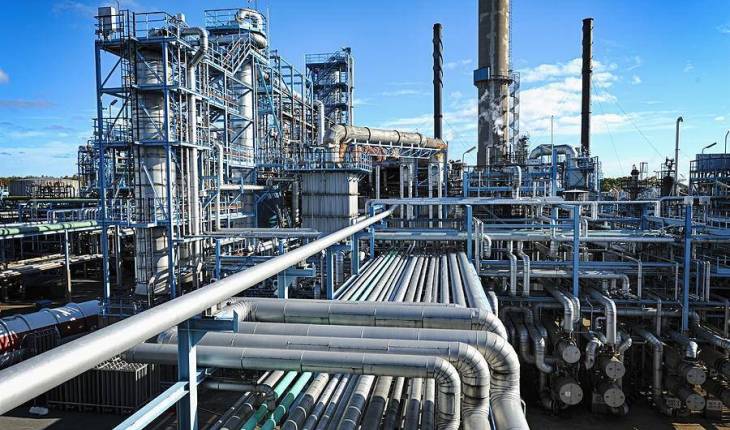- FG May Sell Warri, Kaduna Refineries
There are indications that the Federal Government will sell two of its three crude oil refineries that are found to have become commercially unviable as part of measures to boost the nation’s refining sector.
The two refineries likely to be sold, according to a report of the Nigerian National Petroleum Corporation obtained by our correspondent on Friday, are the Warri Refining and Petrochemical Company and the Kaduna Refining and Petrochemical Company
The NNPC said last week that the consolidated capacity utilisation of the three government-owned refineries dropped to 23.09 per cent in May, from 24.59 per cent in April.
The third refinery being managed by the NNPC is the Port Harcourt Refining Company.
Although the Ministry of Petroleum Resources, in the new National Petroleum Policy approved by the Federal Executive Council, said the government aimed to make the refineries successful and commercially viable enterprises, it stressed that government was ready to sell any of them that failed to meet respond promptly.
It said, “They will be encouraged to become so and will be supported as much as it is within the government’s ability to do so. Each refinery will be given a transition period in which to set themselves up on their own feet.
“Ultimately though, if a refinery fails to make the transition and become commercially viable, the petroleum policy is for the government to divest (sell off), grant a concession or if necessary, close down any non-performing government-owned refinery. In either instance, the site may be handed over to a suitably qualified private sector developer to build a new refinery facility on the same site.”
According to the policy document, of the three NNPC refineries, Port Harcourt is expected to be the best place to succeed.
It said, “It has installed its own independent gas-fired power supply; it has undertaken its own turnaround maintenance; it is close to jetties and the pipeline length from crude oil suppliers is short (less of a pipeline security risk), and it is operationally ready to produce refined products to international standards, although the cost structure is still not right.
“Of the three, Kaduna is perhaps the least ready currently because of its distance from crude oil supplies and reliance on a poorly maintained crude oil pipeline.”
The government described a strong refining sector as a basic requirement for the achievement of the vision of converting the nation’s economy from a crude oil export to an oil product and derivative value-added economy.
It said without strong, high volume and commercially viable refineries within the country, the whole vision would not be achievable.
The government noted that the refineries had been underperforming for many years, stressing the need for the refining sector to undergo fundamental reform so that it could play its central part in economic development.
According to the policy document, steps that the government will take to encourage the development of a viable refining sector in the country include making the NNPC refineries become autonomous profit centres and returning storage depot assets to the refineries.
It said under the restructuring of the NNPC, the refineries would be set up as independent profit centres with responsibility for their own commercial operations.
The government noted that the storage depots were originally part of the refineries but had been subsequently transferred from the refineries to Pipeline and Product Marketing Company.
It said, “This arrangement is not considered to have been successful. The PPMC has failed to manage the depots effectively and the refineries have been denied an important part of their assets. The storage depots will, therefore, be returned to the refineries.
“In addition, the perimeter fence around the refineries will be set sufficiently far from the operations including depots to ensure that proper security can be maintained. Everything inside the perimeter fence will belong to the refinery solely and will be on each refinery’s asset register.”
The government said as part of their new independence, each of the refineries would be given commercial autonomy, meaning that they would be free to take crude oil from wherever they could get it.

 Naira4 weeks ago
Naira4 weeks ago
 News3 weeks ago
News3 weeks ago
 Education4 weeks ago
Education4 weeks ago
 Social Media4 weeks ago
Social Media4 weeks ago
 Economy4 weeks ago
Economy4 weeks ago
 Investment4 weeks ago
Investment4 weeks ago
 Dividends4 weeks ago
Dividends4 weeks ago
 Business3 weeks ago
Business3 weeks ago





























